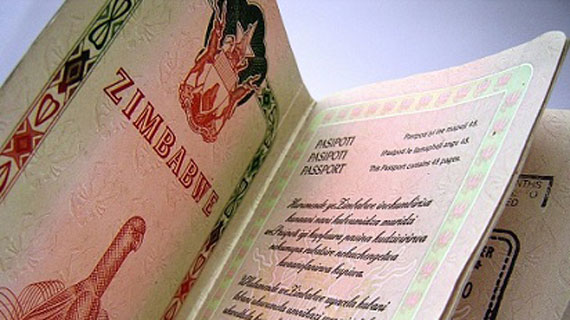
THE SOUTH African government has urged all Zimbabweans who acquired permits through the 2009 special dispensation to renew the documents as they are about to expire.
Annahstacia Ndlovu, Own Correspondent
Pretoria had indicated that it was tightening the permit system after Cabinet approved new measures, a signal that unsettled many Zimbabweans living in South Africa. But in an interview at the just-ended Zimbabwe International Trade Fair, South Africa’s ambassador to Zimbabwe, Vusi Mavimbela, said there was no reason to worry.
“The Zimbabwe Documentation Project was an experiment meant to save the government money and explore if business and the economy would improve in the process,” he said.
“So far, it has proven to be very successful and the government is happy with the first phase of the programme.
“I can assure you that the programme will not only see permits being renewed, but will also be extended beyond those who got the first permits.”
Mavimbela said for one to be able to renew a permit they should have a clean record and be able to provide proof of employment, study or business.
“The plan is to give an extra year to those who already had permits, while new applicants will be thoroughly screened this time and required to satisfy some requirements that are still being set by government,” he said.
- Chamisa under fire over US$120K donation
- Mavhunga puts DeMbare into Chibuku quarterfinals
- Pension funds bet on Cabora Bassa oilfields
- Councils defy govt fire tender directive
Keep Reading
“Some of the requirements are that people should prove that they are employed under the category of ‘critical skills’ or have their employers come forward to vouch for them.
“New work and business permits will be valid for four years, in line with new government policy on migration, while study permits will be valid for the duration of the course.”
Mavimbela said permit holders would be granted South African citizenship after five years.
He said the special dispensation had created business opportunities for South Africans that Pretoria did not want to disrupt.
“Most South African business sectors, like insurance and banking, have since the launch of the programme, designed programmes specifically targeting Zimbabweans and would not like to lose,” he said.
“Talks are going on between governments on how to roll out the second phase in a manner that will benefit both countries.”
The Zimbabwe Documentation Project was launched in 2010 to give Zimbabwean nationals the opportunity to regularise their stay in South Africa by applying for work or study permits.
The project offered an alternative to Zimbabweans trying to legalise their continued stay in South Africa, other than turning to the country’s chaotic and over-subscribed asylum system.
During the permit application period a moratorium on deportations of undocumented Zimbabweans was in place.
This moratorium was lifted when the deadline for applications ended. Only an estimated 230 000 Zimbabweans applied for permits, which is said to be a fraction of locals living in that country.










